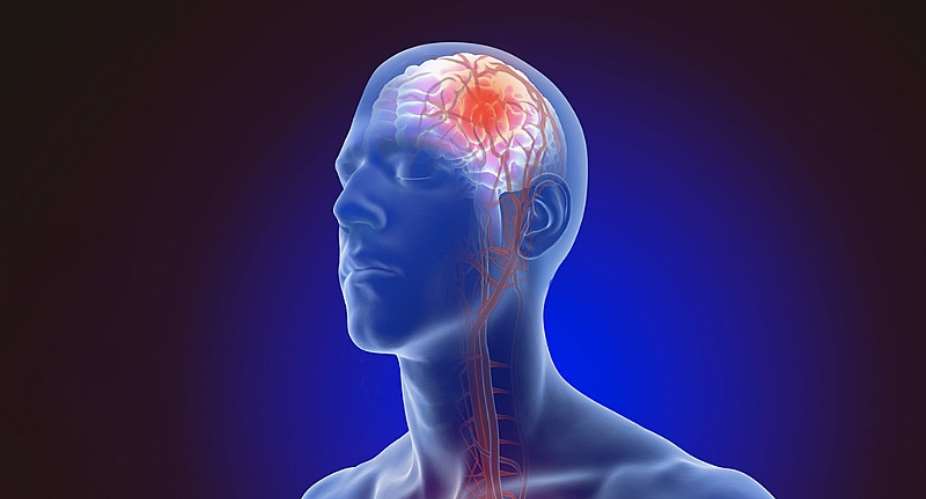Stroke prevention is a comprehensive strategy that goes beyond controlling risk factors such as diabetes and high blood pressure. One of the most important aspects of stroke prevention that physicians can affect is diet. It is impossible to overestimate the importance of a balanced diet in preserving cardiovascular health and lowering the risk of stroke. This article will discuss the relationship between food and stroke prevention and provide doable dietary suggestions for the best possible brain health.
Recognizing the Connection between Stroke Risk and Nutrition:
Our cardiovascular health is greatly influenced by the foods we eat. Stroke can be greatly reduced with a diet high in antioxidants, heart-healthy fats, and nutrients. On the other hand, risk factors including high blood pressure and cholesterol can increase with a diet heavy in processed foods, salt, and saturated fats.
Important Nutrients to Prevent Strokes:
- Omega-3 Fatty Acids: These acids are present in walnuts, flaxseeds, and fatty fish (such salmon and mackerel). They have been linked to a decreased risk of stroke. These vital fats support healthy blood vessel maintenance, lower inflammation, and enhance the best possible brain performance.
- Fruits and Vegetables: A diverse range of fruits and vegetables offers important antioxidants, vitamins, and minerals. By defending against oxidative stress and inflammation, these nutrients lower the risk of stroke and atherosclerosis. For a wide range of nutrients, aim for a variety of colors.
- Whole Grains: High in dietary fiber, whole grains such as brown rice, quinoa, and whole wheat help control blood sugar and cholesterol levels. Thus, the risk of stroke is decreased and cardiovascular health is supported.
- Lean Proteins: Choose tofu, fish, chicken, and lentils as your lean protein sources. Reducing consumption of red and processed meat is linked to a decreased risk of stroke and other cardiovascular illnesses.
- Nuts and Seeds: Rich sources of heart-healthy fats, fiber, and antioxidants are almonds, walnuts, chia seeds, and flaxseeds. These have the potential to lower inflammation and improve cardiovascular health in general.
- Limit salt and Processed Foods: Consuming too much salt can raise blood pressure, which is a significant stroke risk factor. Urge them to cut back on processed foods, soups in cans, and salty snacks.
Realistic Dietary Suggestions:
- The Mediterranean Diet: Suggested to patients is an eating plan based on the Mediterranean diet, with an emphasis on whole grains, fruits, vegetables, seafood, and healthy fats. There is a constant link between this eating pattern and a decreased risk of stroke and cardiovascular diseases.
- Mindful Eating: Encourage mindful eating practices, such as observing portion sizes, being aware of your body's signals of hunger and fullness, and putting an end to outside distractions when eating. Both overall heart health and weight management can benefit from these measures.
- Hydration: Sustaining blood viscosity and promoting general cardiovascular health require adequate hydration. Urge patients to prioritize drinking water and to cut out on sugar-filled beverages.
We have a special chance as healthcare professionals to enable our patients to make lifestyle decisions that help prevent strokes. We lower our patients' risk of stroke and improve their general well-being by stressing the value of a nutrient-rich, balanced diet. Incorporating nutrition education into our healthcare strategy can be a potent weapon against stroke, supporting mental and physical well-being.





 Don't travel to volatile regions in northern Mali — Ministry of Foreign Affair t...
Don't travel to volatile regions in northern Mali — Ministry of Foreign Affair t...
 ILO’s claim of depleting reserves false, we have funds to pay pensions — SSNIT
ILO’s claim of depleting reserves false, we have funds to pay pensions — SSNIT
 Benin police fire tear gas to break up union protest
Benin police fire tear gas to break up union protest
 Lay KPMG audit report on SML-GRA contract before Parliament – Isaac Adongo tells...
Lay KPMG audit report on SML-GRA contract before Parliament – Isaac Adongo tells...
 Supervisor remanded for stabbing businessman with broken bottle and screwdriver
Supervisor remanded for stabbing businessman with broken bottle and screwdriver
 People no longer place value in public basic schools; new uniforms, painting wil...
People no longer place value in public basic schools; new uniforms, painting wil...
 'Comedian' Paul Adom Otchere needs help – Sulemana Braimah
'Comedian' Paul Adom Otchere needs help – Sulemana Braimah
 Ejisu by-election: Only 33% of voters can be swayed by inducement — Global InfoA...
Ejisu by-election: Only 33% of voters can be swayed by inducement — Global InfoA...
 Minority will expose the beneficial owners of SML, recover funds paid to company...
Minority will expose the beneficial owners of SML, recover funds paid to company...
 Prof. Opoku-Agyemang has ‘decapitated’ the NPP’s strategies; don’t take them ser...
Prof. Opoku-Agyemang has ‘decapitated’ the NPP’s strategies; don’t take them ser...
